Trending Assets
Top investors this month
Trending Assets
Top investors this month
Summer Reading List: Tweep Top Picks
Last July, I gave a list of suggested movies for investors to enjoy over the summer, link below ICYMI:

Thanks to the Grey Bearded Swede for his suggestion of providing a summer reading list this year. Everyone has different tastes, so rather than just providing a list of my own personal favourites, I consulted a group of friends in the investment community and asked them each to offer a top pick. I hope you'll find one of interest on this list that you can enjoy during some summer downtime!
Judging from the comments I received on this Twitter post, it seems like my first read this summer will be excellent:
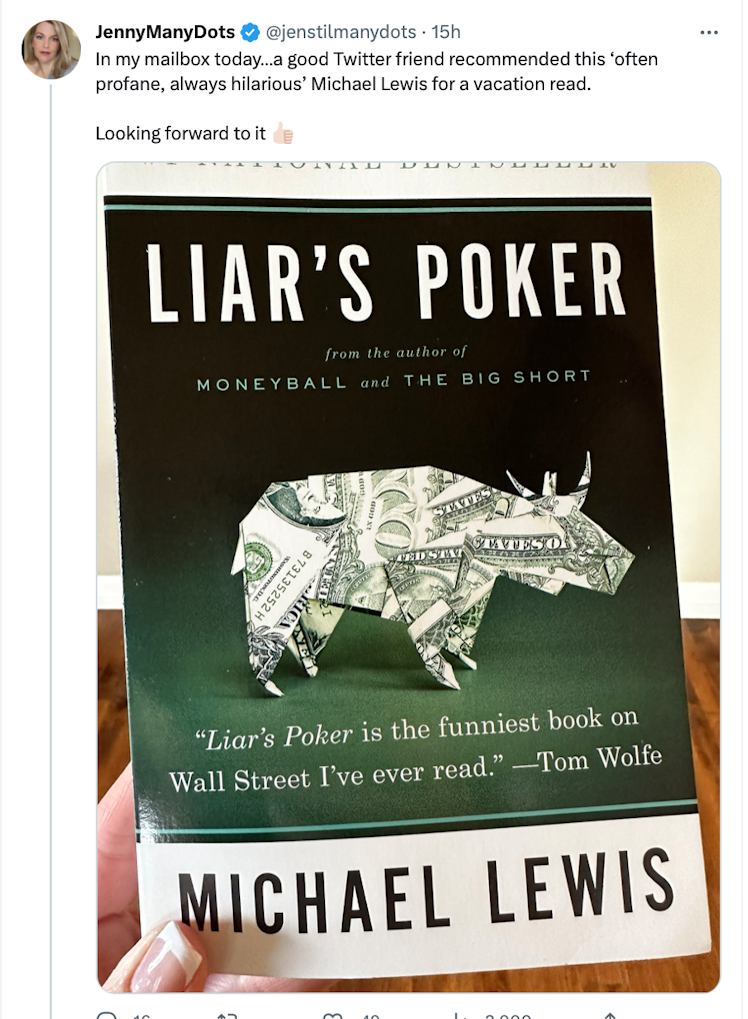
Liar's Poker by Michael Lewis
The time was the 1980s. The place was Wall Street. The game was called Liar’s Poker.
Michael Lewis was fresh out of Princeton and the London School of Economics when he landed a job at Salomon Brothers, one of Wall Street’s premier investment firms. During the next three years, Lewis rose from callow trainee to bond salesman, raking in millions for the firm and cashing in on a modern-day gold rush.
Liar’s Poker is the culmination of those heady, frenzied years—a behind-the-scenes look at a unique and turbulent time in American business. From the frat-boy camaraderie of the forty-first-floor trading room to the killer instinct that made ambitious young men gamble everything on a high-stakes game of bluffing and deception, here is Michael Lewis’s knowing and hilarious insider’s account of an unprecedented era of greed, gluttony, and outrageous fortune.
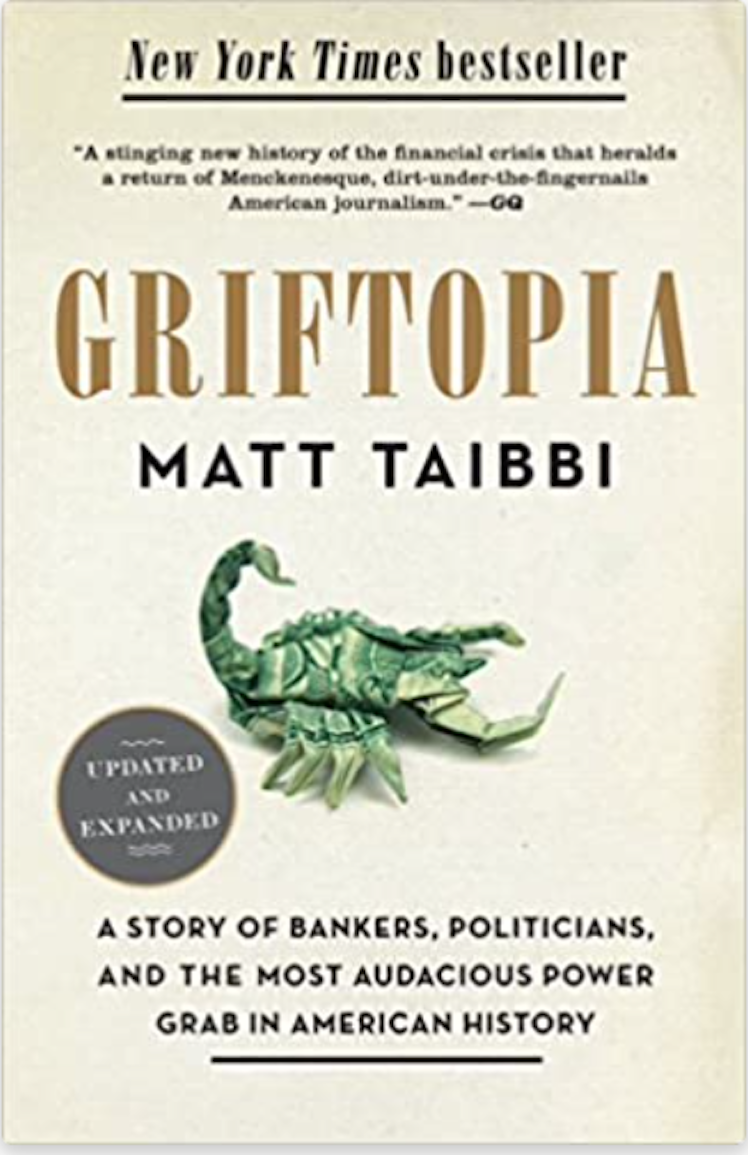
Griftopia: A Story of Bankers, Politicians, and the Most Audacious Power Grab in American History by Matt Taibbi
A close Twitter friend gives Griftopia two thumbs up, saying that "it shows the sheer greed and corruption in Wall Street, and also how this financialization affects real people". A second account, and one I consider my mentor in the mining sector, also gave Griftopia a thumbs up.
A brilliantly illuminating and darkly comic tale of the ongoing financial and political crisis in America. The financial crisis that exploded in 2008 isn’t past but prologue. The grifter class—made up of the largest players in the financial industry and the politicians who do their bidding—has been growing in power, and the crisis was only one terrifying manifestation of how they’ve hijacked America’s political and economic life.
Matt Taibbi has combined deep sources, trailblazing reportage, and provocative analysis to create the most lucid, emotionally galvanizing account yet written of this ongoing American crisis. He offers fresh reporting on the backroom deals of the bailout; tells the story of Goldman Sachs, the “vampire squid wrapped around the face of humanity”; and uncovers the hidden commodities bubble that transferred billions of dollars to Wall Street while creating food shortages around the world.
This is essential reading for anyone who wants to understand the labyrinthine inner workings of this country, and the profound consequences for us all.
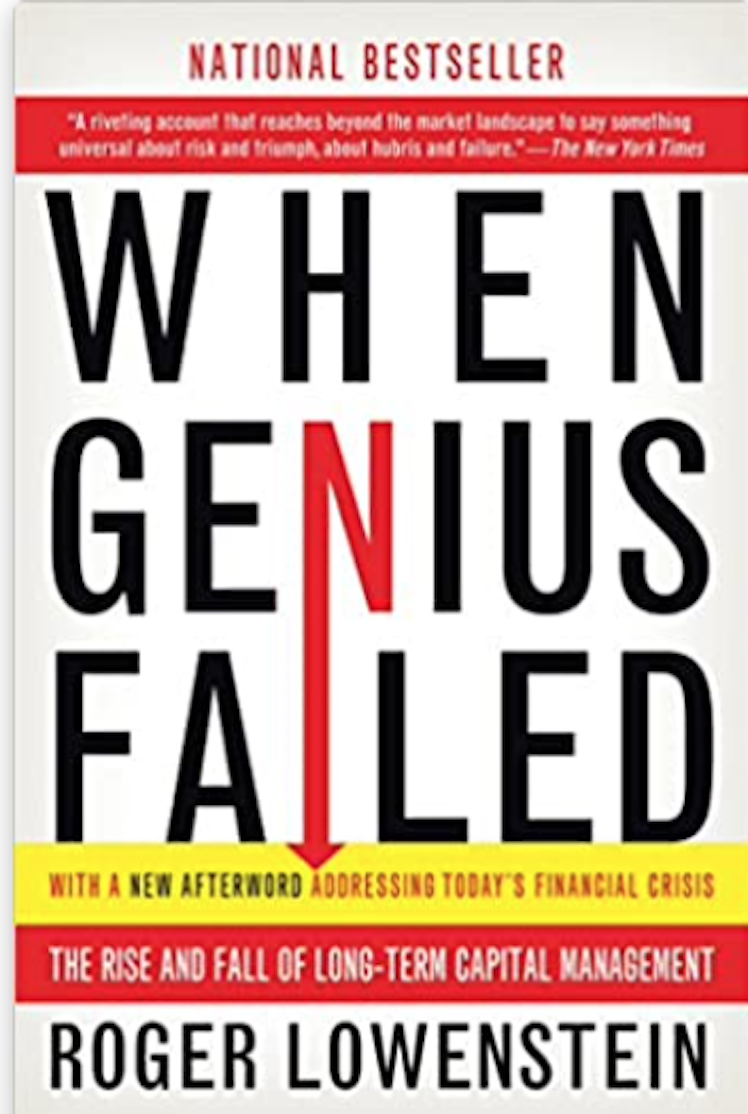
When Genius Failed: The Rise and Fall of Long-Term Capital Management by Roger Lowenstein

William informed me this one was so good that he was willing to offer me a money back guarantee (sorry, but that offer only applies to me - thanks William!)
A BUSINESS WEEK BEST BOOK OF THE YEAR
In this business classic—now with a new Afterword in which the author draws parallels to the recent financial crisis—Roger Lowenstein captures the gripping roller-coaster ride of Long-Term Capital Management. Drawing on confidential internal memos and interviews with dozens of key players, Lowenstein explains not just how the fund made and lost its money but also how the personalities of Long-Term’s partners, the arrogance of their mathematical certainties, and the culture of Wall Street itself contributed to both their rise and their fall.
When it was founded in 1993, Long-Term was hailed as the most impressive hedge fund in history. But after four years in which the firm dazzled Wall Street as a $100 billion moneymaking juggernaut, it suddenly suffered catastrophic losses that jeopardized not only the biggest banks on Wall Street but the stability of the financial system itself. The dramatic story of Long-Term’s fall is now a chilling harbinger of the crisis that would strike all of Wall Street, from Lehman Brothers to AIG, a decade later. In his new Afterword, Lowenstein shows that LTCM’s implosion should be seen not as a one-off drama but as a template for market meltdowns in an age of instability—and as a wake-up call that Wall Street and government alike tragically ignored.
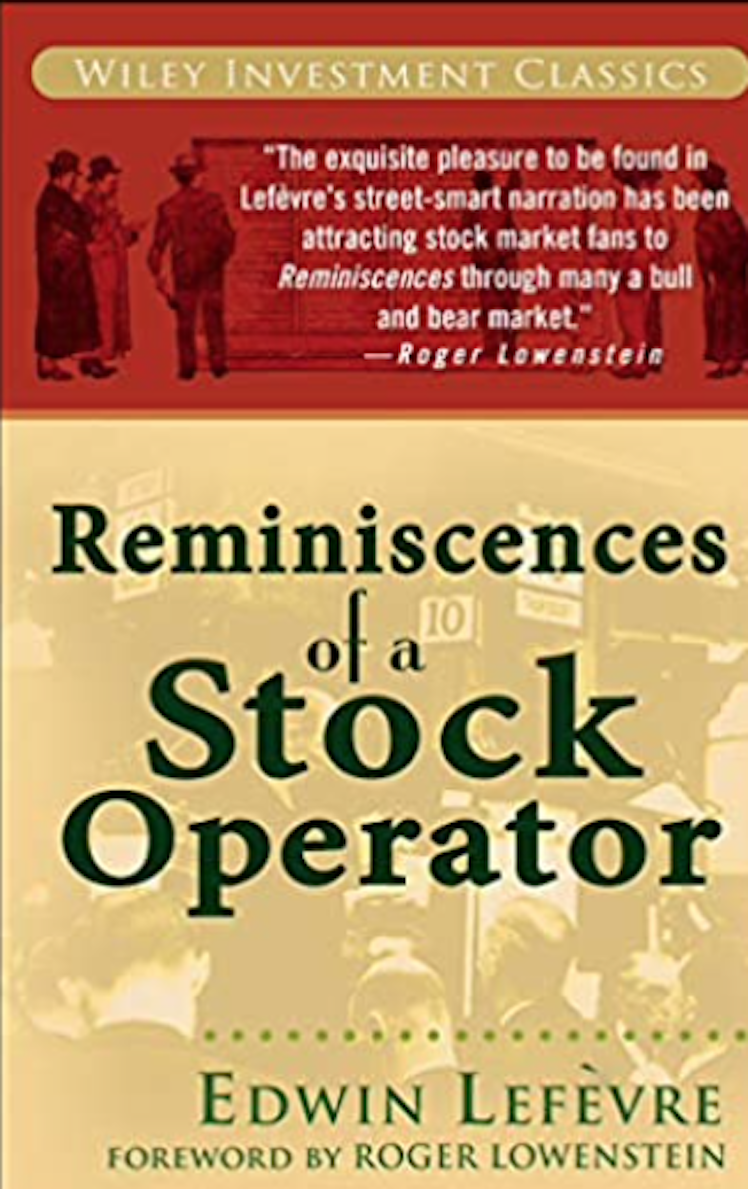
Reminiscences of a Stock Operator by Edwin Lefevre
"A must-read for speculators", this one has been recommended to me on more than one occasion. Too often those dopamine bursts of 280 characters takes priority for me, and this one has sat unopened on my bookshelf for too long. I intend to make it a priority this summer.
"Although Reminiscences...was first published some seventy years ago, its take on crowd psychology and market timing is a s timely as last summer's frenzy on the foreign exchange markets."
—Worth magazine
"The most entertaining book written on investing is Reminiscences of a Stock Operator, by Edwin Lefèvre, first published in 1923."
—The Seattle Times
"After twenty years and many re-reads, Reminiscences is still one of my all-time favorites."
—Kenneth L. Fisher, Forbes
"A must-read classic for all investors, whether brand-new or experienced."
—William O'Neil, founder and Chairman, Investor's Business Daily
"Whilst stock market tomes have come and gone, this remains popular and in print eighty years on."
—GQ magazine
First published in 1923, Reminiscences of a Stock Operator is the most widely read, highly recommended investment book ever. Generations of readers have found that it has more to teach them about markets and people than years of experience. This is a timeless tale that will enrich your life—and your portfolio.
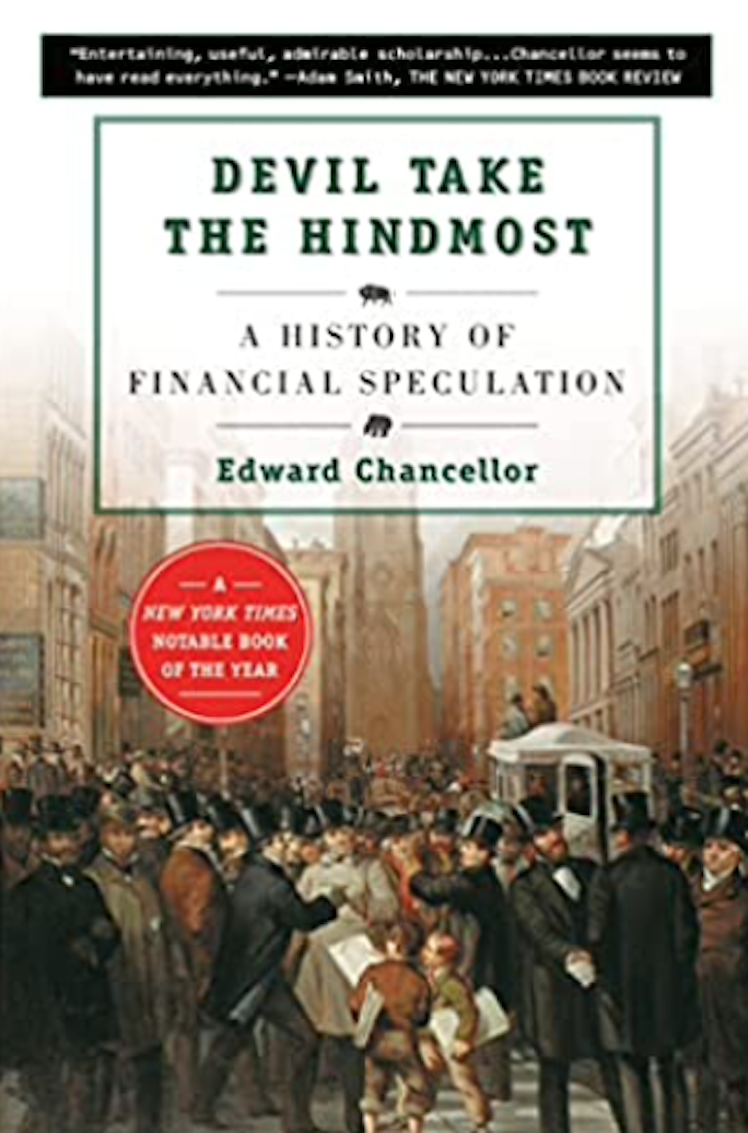
Devil Take the Hindmost: A History of Financial Speculation by Edward Chancellor
Is your investment in that new Internet stock a sign of stock market savvy or an act of peculiarly American speculative folly? How has the psychology of investing changed—and not changed—over the last five hundred years?
In Devil Take the Hindmost, Edward Chancellor traces the origins of the speculative spirit back to ancient Rome and chronicles its revival in the modern world: from the tulip scandal of 1630s Holland, to “stockjobbing” in London's Exchange Alley, to the infamous South Sea Bubble of 1720, which prompted Sir Isaac Newton to comment, “I can calculate the motion of heavenly bodies, but not the madness of people.”
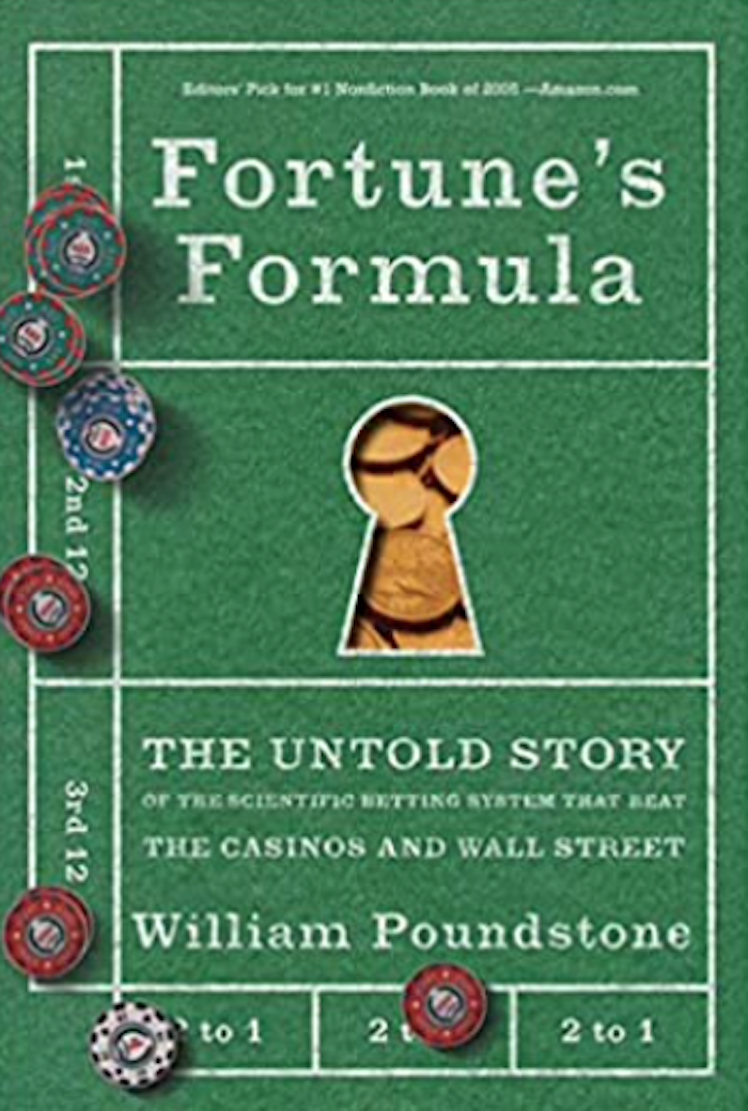
Fortune's Formula: The Untold Story of the Scientific Betting System That Beat the Casinos and Wall Street by William Poundstone
"One I've loved and reread several times", a #COM friend highly recommends this engaging pick.
In 1956 two Bell Labs scientists discovered the scientific formula for getting rich. One was mathematician Claude Shannon, neurotic father of our digital age, whose genius is ranked with Einstein's. The other was John L. Kelly Jr., a Texas-born, gun-toting physicist. Together they applied the science of information theory―the basis of computers and the Internet―to the problem of making as much money as possible, as fast as possible.
Shannon and MIT mathematician Edward O. Thorp took the "Kelly formula" to Las Vegas. It worked. They realized that there was even more money to be made in the stock market. Thorp used the Kelly system with his phenomenonally successful hedge fund, Princeton-Newport Partners. Shannon became a successful investor, too, topping even Warren Buffett's rate of return. Fortune's Formula traces how the Kelly formula sparked controversy even as it made fortunes at racetracks, casinos, and trading desks. It reveals the dark side of this alluring scheme, which is founded on exploiting an insider's edge.
Shannon believed it was possible for a smart investor to beat the market―and Fortune's Formula will convince you that he was right.
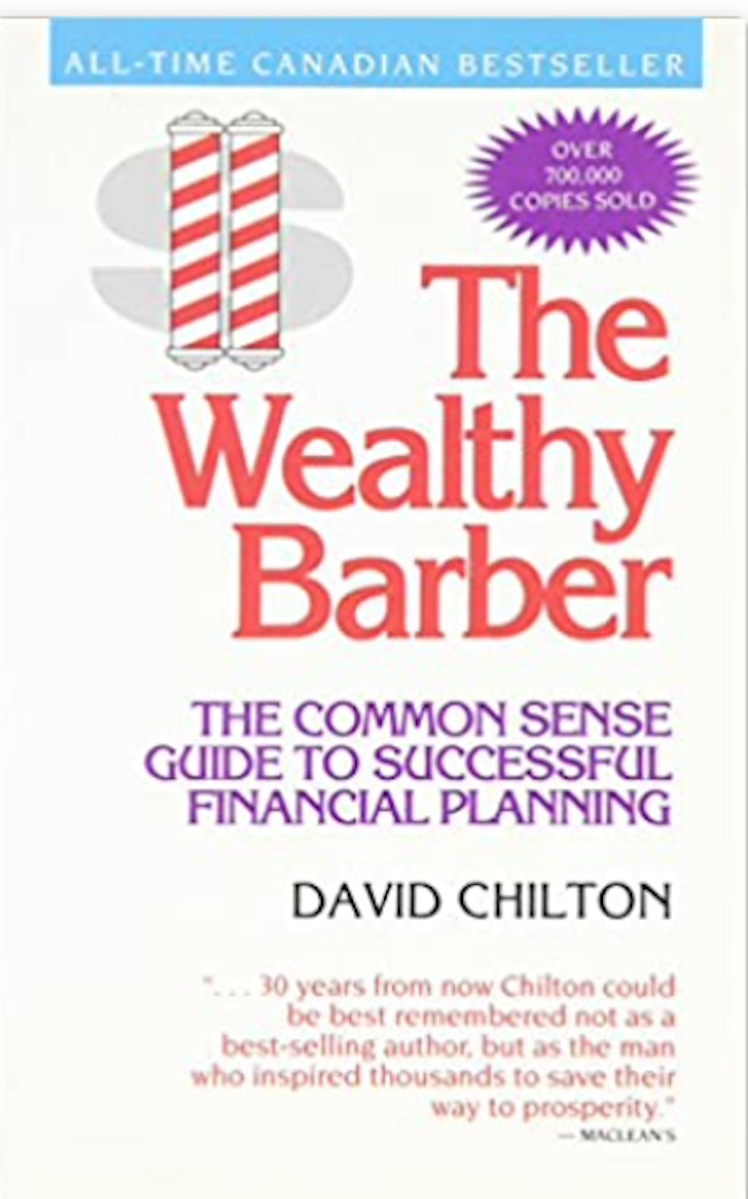
The Wealthy Barber by David Chilton
I was actually given this one as a wedding gift and consider that a wonderful idea. Those of us on CommonStock and part of Twitter's investment community are here because we already have an interest in the financial realm. Sadly not every young person starting out finds it all that appealing, and this is a superb introduction to why it should matter.
A guide to gaining financial independence simplifies and clarifies the subject of personal financial planning, describing how anyone can become wealthy without speculation and unnecessary risk.
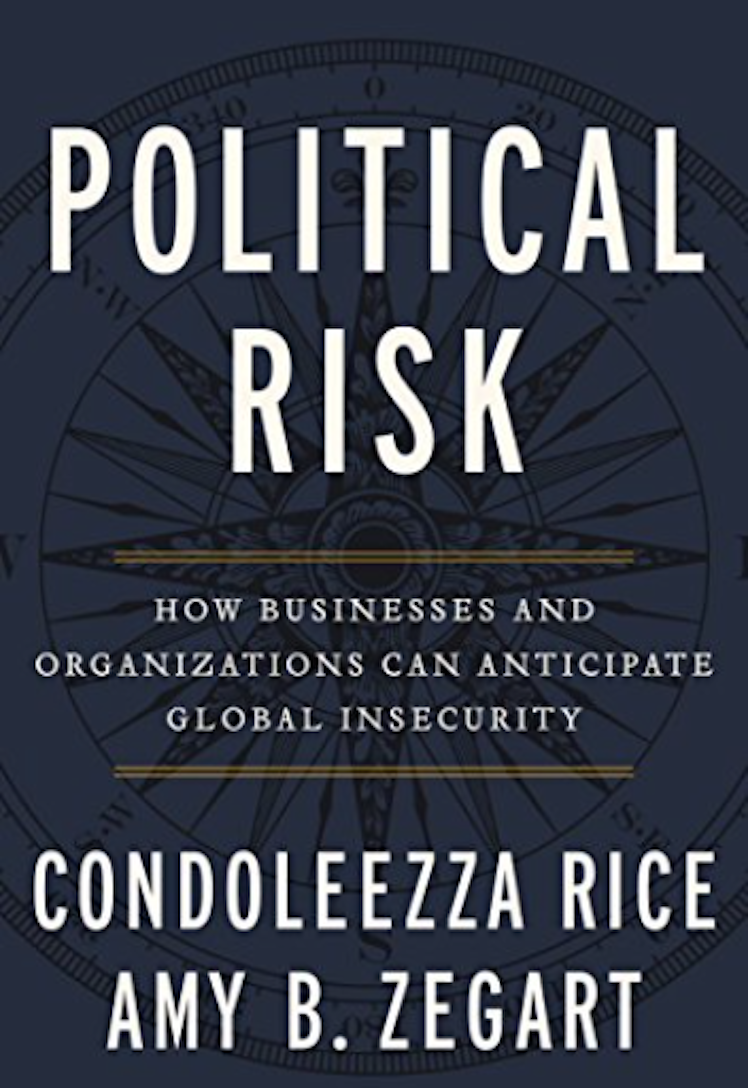
Political Risk: How Businesses and Organizations Can Anticipate Global Insecurity by Condoleezza Rice & Amy B. Zegart
From New York Times bestselling author and former U.S. secretary of state Condoleezza Rice and Stanford University professor Amy B. Zegart comes an examination of the rapidly evolving state of political risk, and how to navigate it.
The world is changing fast. Political risk-the probability that a political action could significantly impact a company's business-is affecting more businesses in more ways than ever before. A generation ago, political risk mostly involved a handful of industries dealing with governments in a few frontier markets. Today, political risk stems from a widening array of actors, including Twitter users, local officials, activists, terrorists, hackers, and more. The very institutions and laws that were supposed to reduce business uncertainty and risk are often having the opposite effect. In today's globalized world, there are no "safe" bets.
POLITICAL RISK investigates and analyzes this evolving landscape, what businesses can do to navigate it, and what all of us can learn about how to better understand and grapple with these rapidly changing global political dynamics. Drawing on lessons from the successes and failures of companies across multiple industries as well as examples from aircraft carrier operations, NASA missions, and other unusual places, POLITICAL RISK offers a first-of-its-kind framework that can be deployed in any organization, from startups to Fortune 500 companies.
Organizations that take a serious, systematic approach to political risk management are likely to be surprised less often and recover better. Companies that don't get these basics right are more likely to get blindsided.
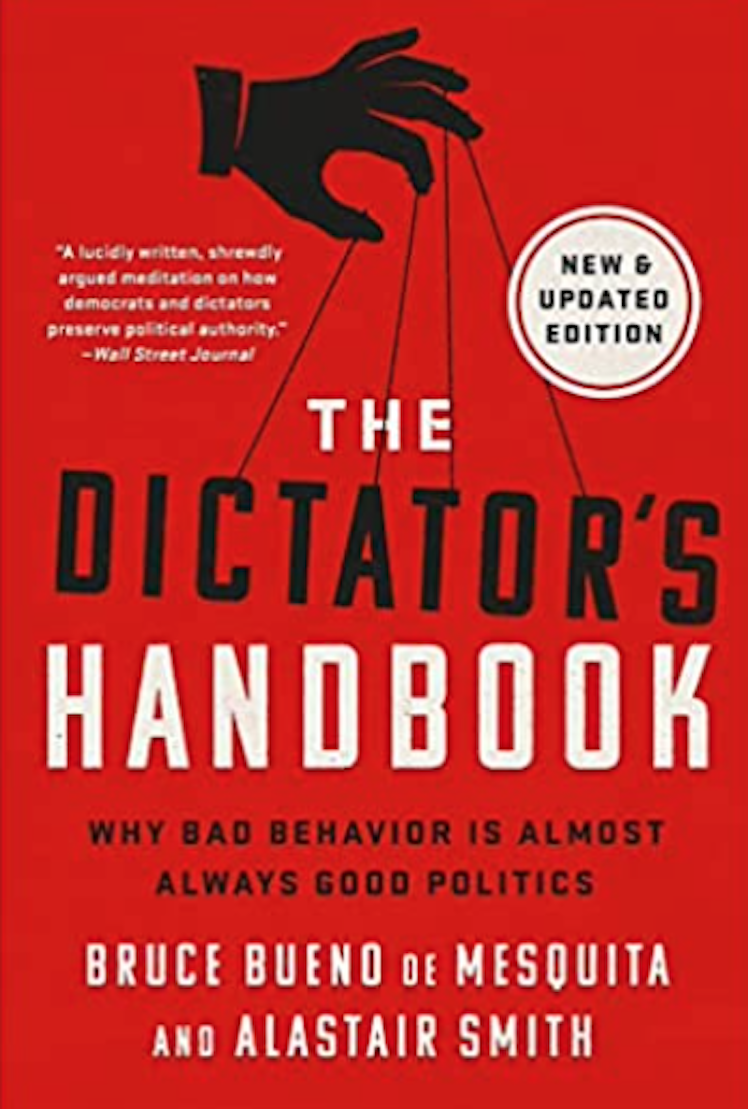
The Dictator's Handbook by Bruce Bueno de Mesquita & Alastair Smith
As featured in the viral video “Rules for Rulers,” which has been viewed over fifteen million times.
Bruce Bueno de Mesquita and Alastair Smith’s canonical book on political science turned conventional wisdom on its head. They started from a single assertion: leaders do whatever keeps them in power. They don’t care about the “national interest”—or even their subjects—unless they must.
Newly updated to reflect the global rise of authoritarianism, this clever and accessible book illustrates how leaders amass and retain power. As Bueno de Mesquita and Smith show, democracy is essentially just a convenient fiction. Governments do not differ in kind, but only in the number of essential supporters or backs that need scratching. The size of this group determines almost everything about politics: what leaders can get away with, and the quality of life or misery under them. And it is also the key to returning power to the people.
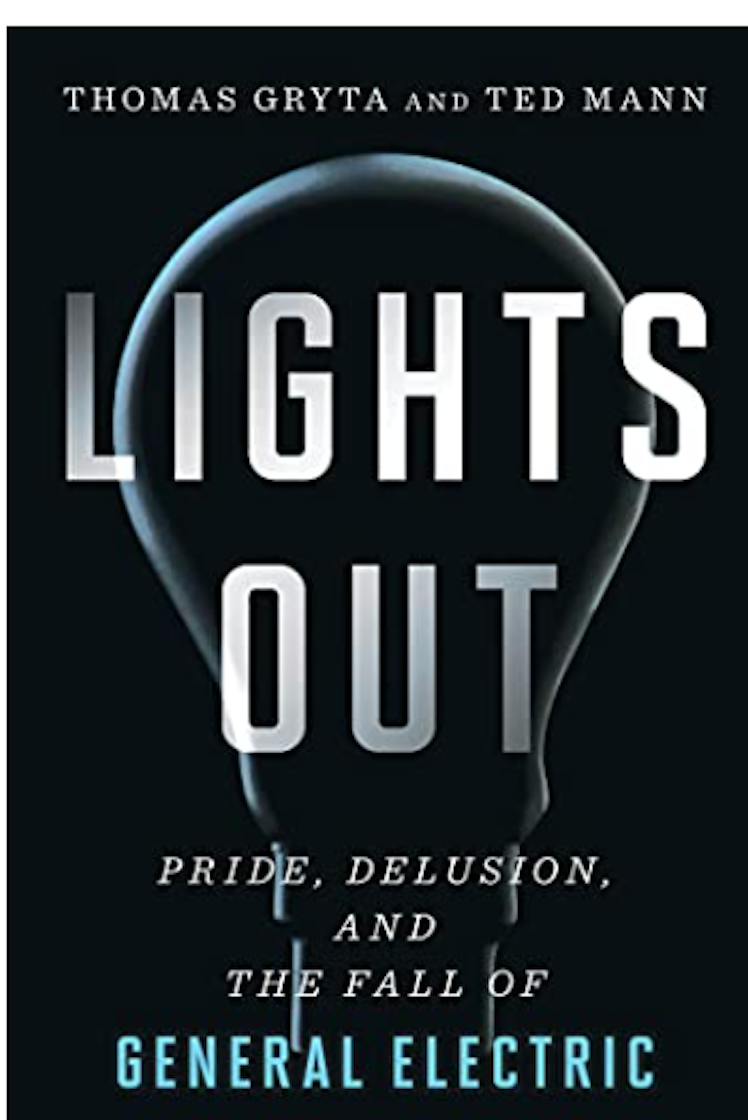
Lights Out: Pride, Delusion, and The Fall of General Electric
A WALL STREET JOURNAL BESTSELLER
"If you’re in any kind of leadership role—whether at a company, a non-profit, or somewhere else—there’s a lot you can learn here."—Bill Gates, Gates Notes
How could General Electric—perhaps America’s most iconic corporation—suffer such a swift and sudden fall from grace?This is the definitive history of General Electric’s epic decline, as told by the two Wall Street Journal reporters who covered its fall.
Since its founding in 1892, GE has been more than just a corporation. For generations, it was job security, a solidly safe investment, and an elite business education for top managers.
GE electrified America, powering everything from lightbulbs to turbines, and became fully integrated into the American societal mindset as few companies ever had. And after two decades of leadership under legendary CEO Jack Welch, GE entered the twenty-first century as America’s most valuable corporation. Yet, fewer than two decades later, the GE of old was gone.
Lights Out examines how Welch’s handpicked successor, Jeff Immelt, tried to fix flaws in Welch’s profit machine, while stumbling headlong into mistakes of his own. In the end, GE’s traditional win-at-all-costs driven culture seemed to lose its direction, which ultimately caused the company’s decline on both a personal and organizational scale. Lights Out details how one of America’s all-time great companies has been reduced to a cautionary tale for our times.
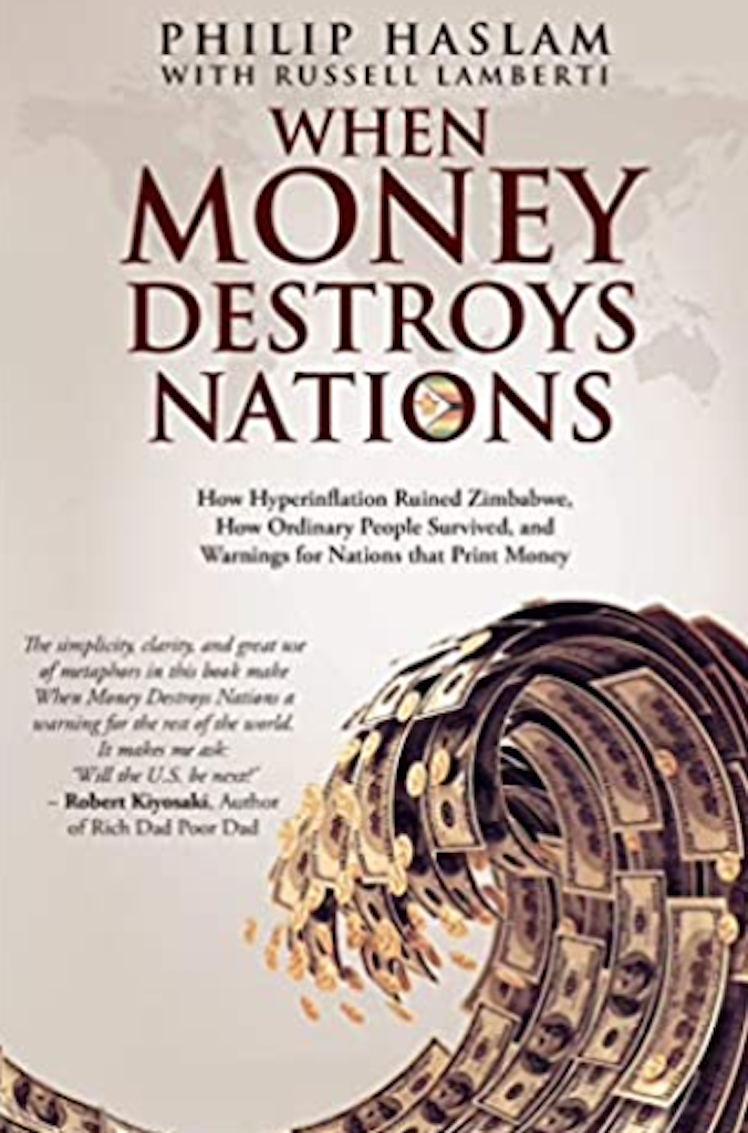
When Money Destroys Nations by Philip Haslam
Since the global financial crisis of 2008, the major governments of the world have resorted to printing vast sums of money to pay national debts and bail out banks. The warning signs are clear, and the collapse of the Zimbabwean dollar in 2009 after years of rampant money printing is a frightening example of what lies in store for the world's economies if painful, but necessary, reform is not enacted soon.
When Money Destroys Nations tells the gripping story of the disintegration of the once-thriving Zimbabwean economy and how ordinary people survived in turbulent circumstances. Analysing this case within a global context, Philip Haslam and Russell Lamberti investigate the causes of hyperinflation and draw ominous parallels between Zimbabwe and the world's developed economies. The looming currency crises and possible hyperinflation in these major economies, particularly the United States, have the potential to turn the current world order upside down. Zimbabwe's lessons must not be ignored. This is the story of When Money Destroys Nations.
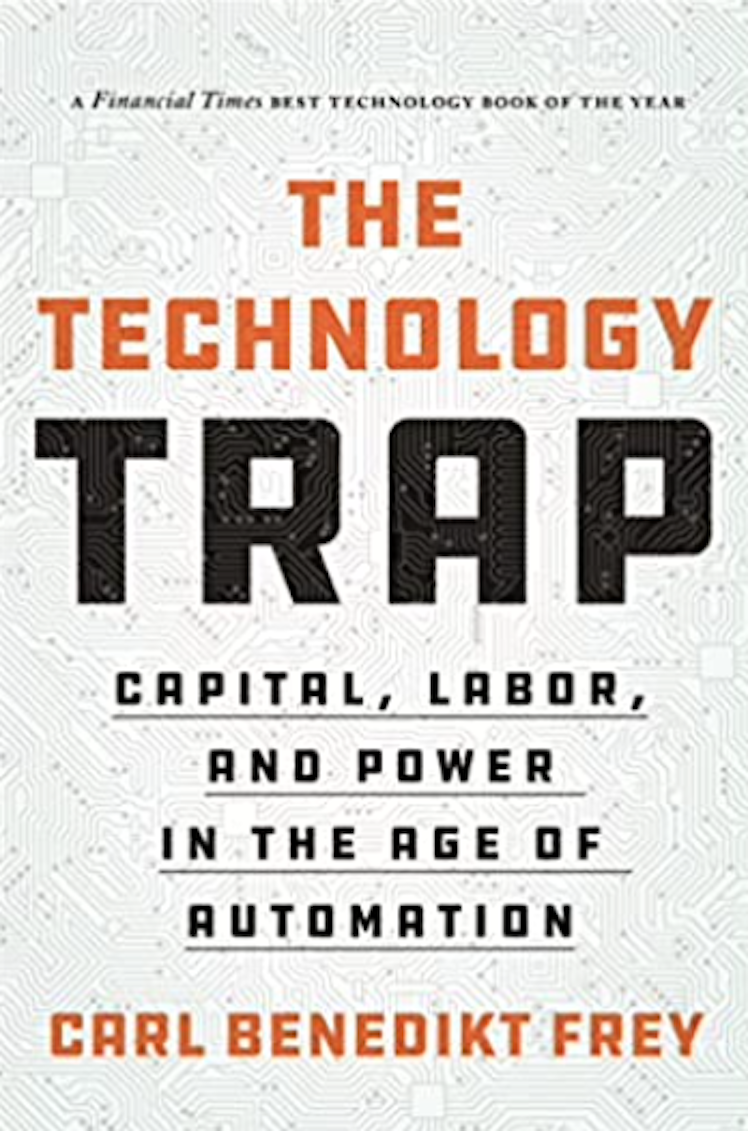
The Technology Trap: Capital, Labor, and Power in the Age of Automation by Carl Benedikt Frey
"Made me look at the industrial revolution, invention, sleeping beauties, contexts and the forces that shape our societies differently."―David Byrne, New York Times Book Review
How the history of technological revolutions can help us better understand economic and political polarization in the age of automation
The Technology Trap is a sweeping account of the history of technological progress and how it has radically shifted the distribution of economic and political power among society’s members. As Carl Benedikt Frey shows, the Industrial Revolution created unprecedented wealth and prosperity over the long run, but the immediate consequences of mechanization were devastating. Middle-income jobs withered, wages stagnated, the labor share of income fell, profits surged, and economic inequality skyrocketed. These trends broadly mirror those in our current age of automation. But, just as the Industrial Revolution eventually brought about extraordinary benefits for society, artificial intelligence systems have the potential to do the same. The Technology Trap demonstrates that in the midst of another technological revolution, the lessons of the past can help us to more effectively face the present.
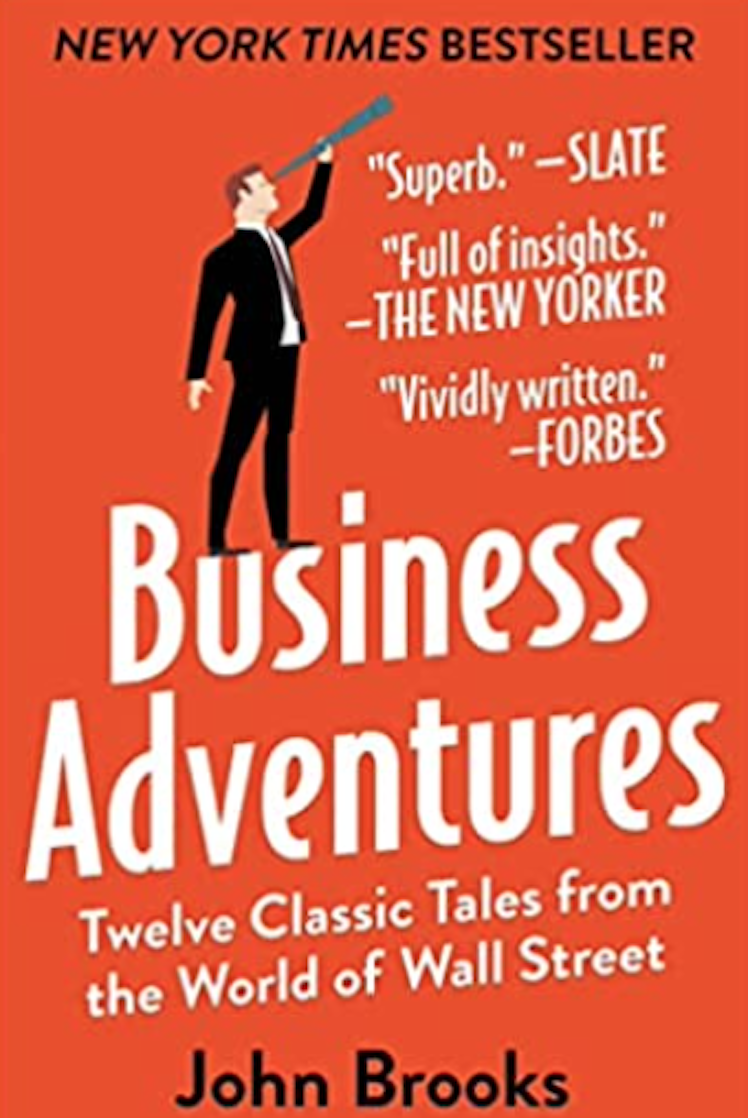
Business Adventures: Twelve Classic Tales From the World of Wall Street by John Brooks
“Business Adventures remains the best business book I’ve ever read.” —Bill Gates, The Wall Street JournalWhat do the $350 million Ford Motor Company disaster known as the Edsel, the fast and incredible rise of Xerox, and the unbelievable scandals at General Electric and Texas Gulf Sulphur have in common? Each is an example of how an iconic company was defined by a particular moment of fame or notoriety; these notable and fascinating accounts are as relevant today to understanding the intricacies of corporate life as they were when the events happened.
Stories about Wall Street are infused with drama and adventure and reveal the machinations and volatile nature of the world of finance. Longtime New Yorker contributor John Brooks’s insightful reportage is so full of personality and critical detail that whether he is looking at the astounding market crash of 1962, the collapse of a well-known brokerage firm, or the bold attempt by American bankers to save the British pound, one gets the sense that history repeats itself.
Five additional stories on equally fascinating subjects round out this wonderful collection that will both entertain and inform readers . . . Business Adventures is truly financial journalism at its liveliest and best.
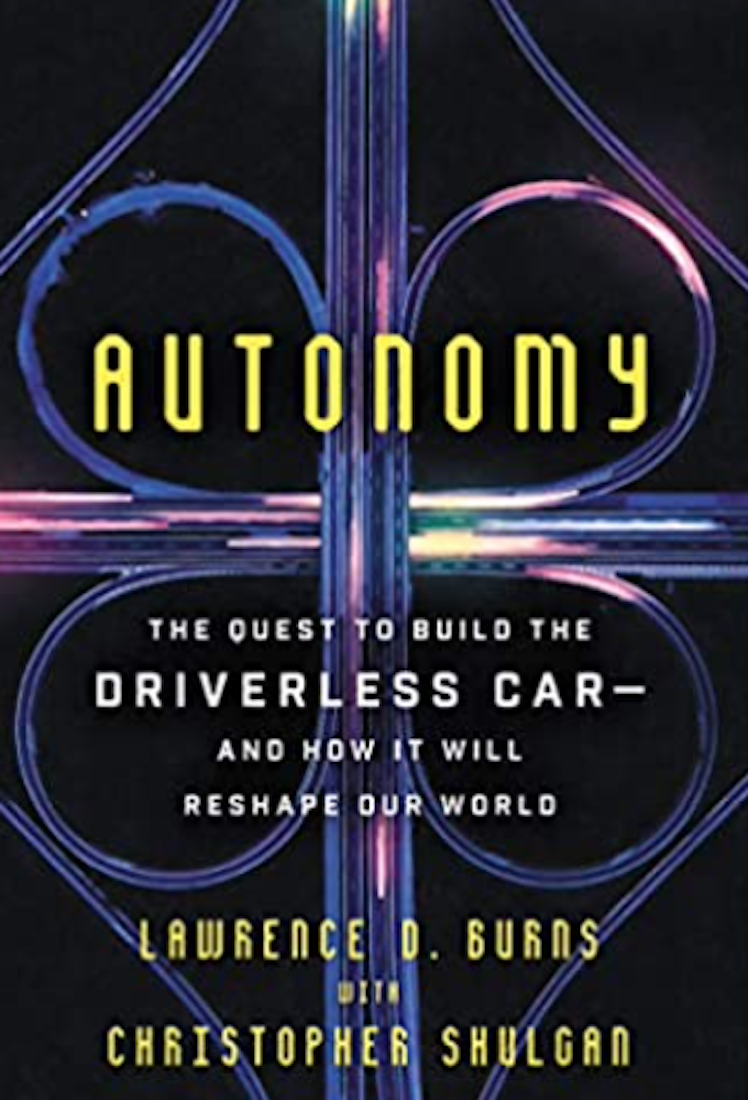
Autonomy: The Quest to Build the Driverless Car & How It Will Reshape Our World
An automotive and tech world insider investigates the quest to develop and perfect the driverless car—an innovation that promises to be the most disruptive change to our way of life since the smartphone
We stand on the brink of a technological revolution. Soon, few of us will own our own automobiles and instead will get around in driverless electric vehicles that we summon with the touch of an app. We will be liberated from driving, prevent over 90% of car crashes, provide freedom of mobility to the elderly and disabled, and decrease our dependence on fossil fuels.
Autonomy is the story of the maverick engineers and computer nerds who are creating the revolution. Longtime advisor to the Google Self-Driving Car team and former GM research and development chief Lawrence D. Burns provides the perfectly-timed history of how we arrived at this point, in a character-driven and heavily reported account of the unlikely thinkers who accomplished what billion-dollar automakers never dared.
Beginning with the way 9/11 spurred the U.S. government to set a million-dollar prize for a series of off-road robot races in the Mojave Desert up to the early 2016 stampede to develop driverless technology, Autonomy is a page-turner that represents a chronicle of the past, diagnosis of the present, and prediction of the future—the ultimate guide to understanding the driverless car and navigating the revolution it sparks.
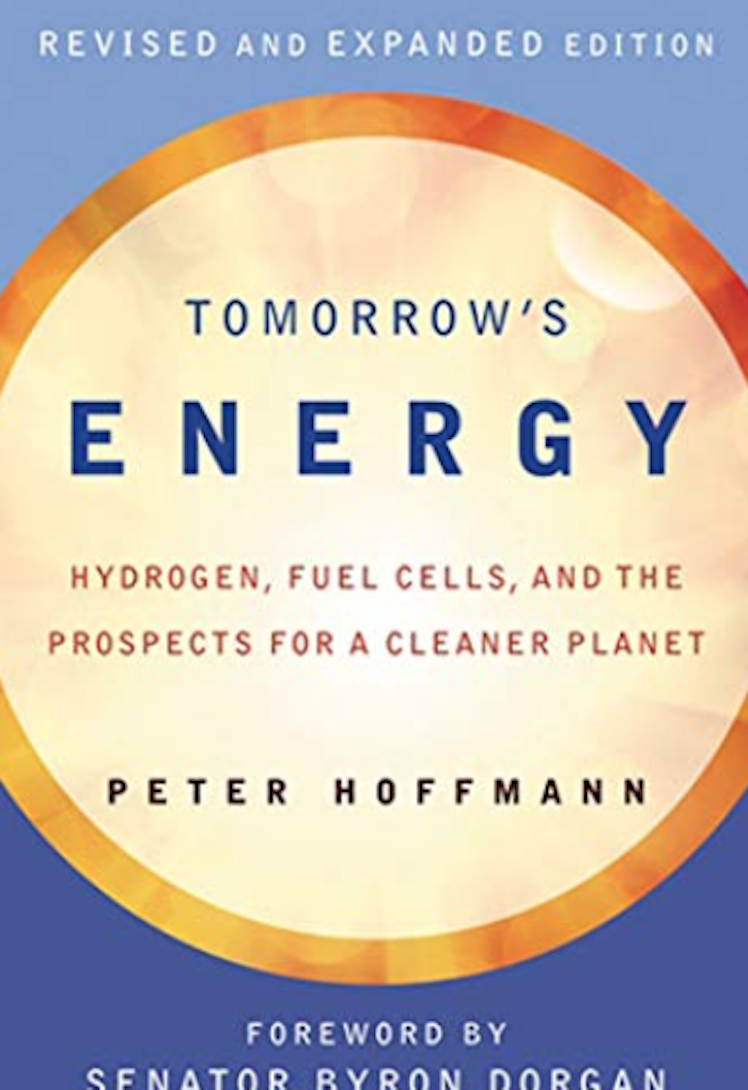
Tomorrow's Energy: Hydrogen, Fuel Cells, and the Prospects for a Cleaner Planet by Peter Hoffmann
Every time I post about hydrogen, the Hindenburg doomsayers come out to tell me how it will never happen. This book might actually change their mind fi they are open to reading it.
How the use of nonpolluting, zero-emission hydrogen as fuel could be the cornerstone of a new energy economy.
Hydrogen is the most abundant element in the universe. An invisible, tasteless, colorless gas, it can be converted to nonpolluting, zero-emission, renewable energy. When burned in an internal combustion engine, hydrogen produces mostly harmless water vapor. It performs even better in fuel cells, which can be 2.5 times as efficient as internal-combustion engines. Zero-emission hydrogen does not contribute to CO2-caused global warming. Abundant and renewable, it is unlikely to be subject to geopolitical pressures or scarcity concerns. In this new edition of his pioneering book Tomorrow's Energy, Peter Hoffmann makes the case for hydrogen as the cornerstone of a new energy economy.
Hoffmann covers the major aspects of hydrogen production, storage, transportation, fuel use, and safety. He explains that hydrogen is not an energy source but a carrier, like electricity, and introduces the concept of “hydricity,” the essential interchangeability of electricity and hydrogen. He brings the hydrogen story up to date, reporting on the latest developments, including new hydrogen and fuel-cell cars from GM, Daimler, BMW, Honda, and Toyota. He describes recent political controversies, including Obama administration Energy Secretary (and Nobel laureate in Physics) Steven Chu's inexplicable dismissal of hydrogen—which puts him at odds with major automakers, German Chancellor Angela Merkel, and others.
Our current energy system is a complex infrastructure, and phasing in hydrogen will take effort and money. But if we consider the real costs of fossil fuels—pollution and its effects, international tensions over gas and oil supplies, and climate change—we would be wise to promote its development.
Wishing you all a wonderful summer as we approach the first holiday weekend of the season in North America!
Happy reading...

X (formerly Twitter)
JennyManyDots (@jenstilmanydots) on X
In my mailbox today…a good Twitter friend recommended this ‘often profane, always hilarious’ Michael Lewis for a vacation read.
Looking forward to it 👍🏻
Already have an account?